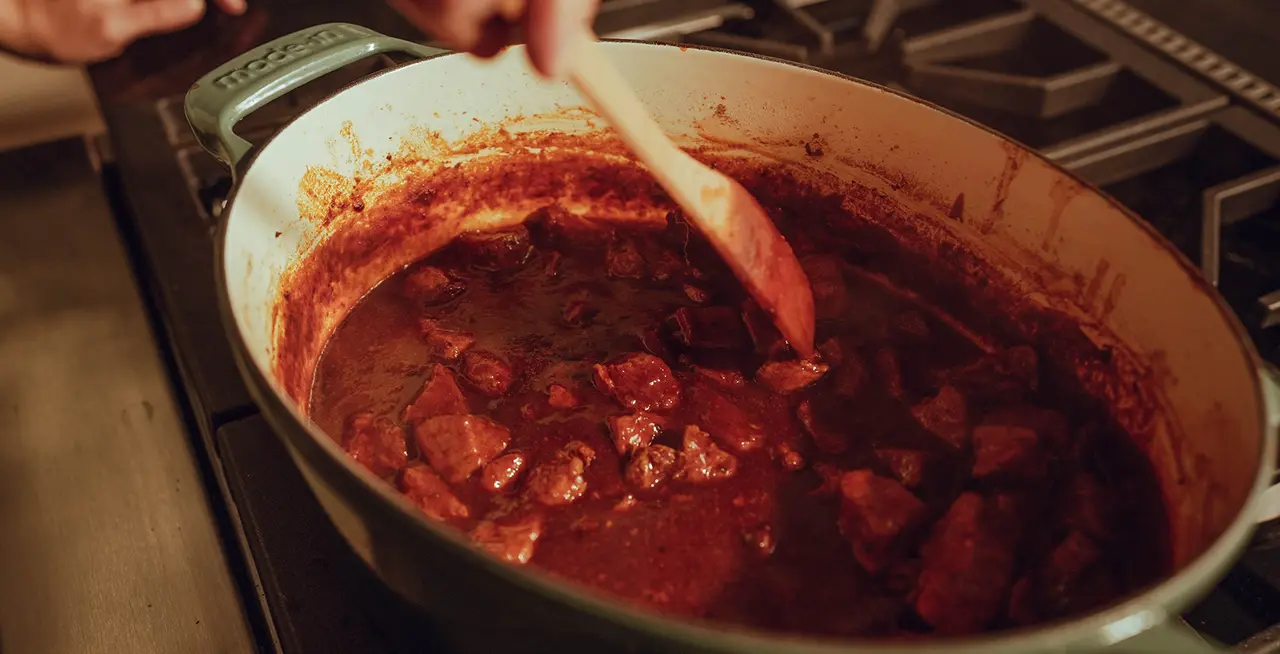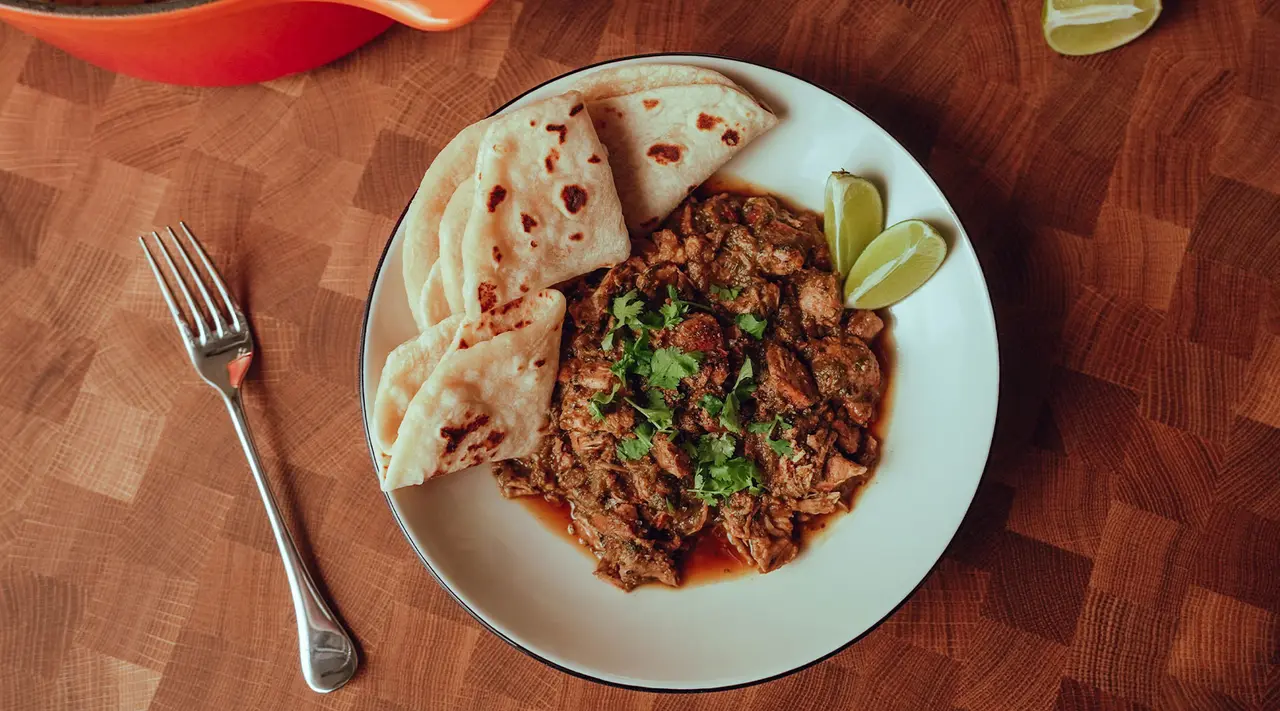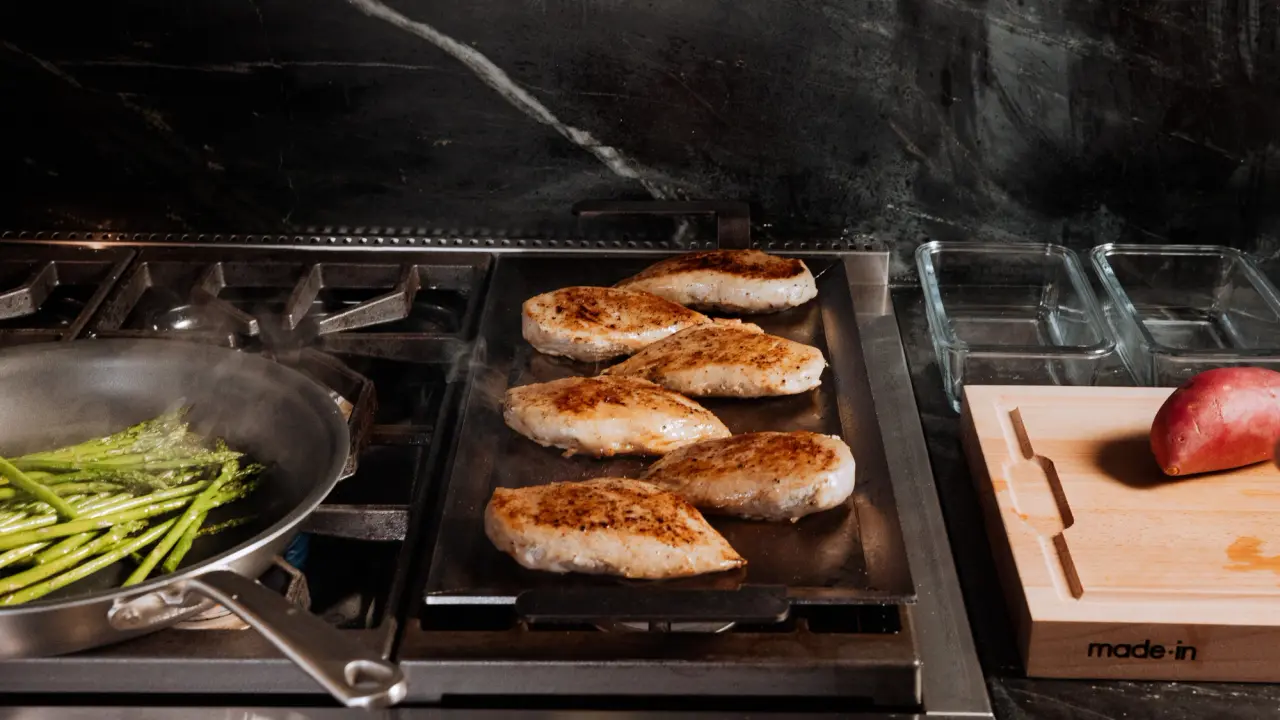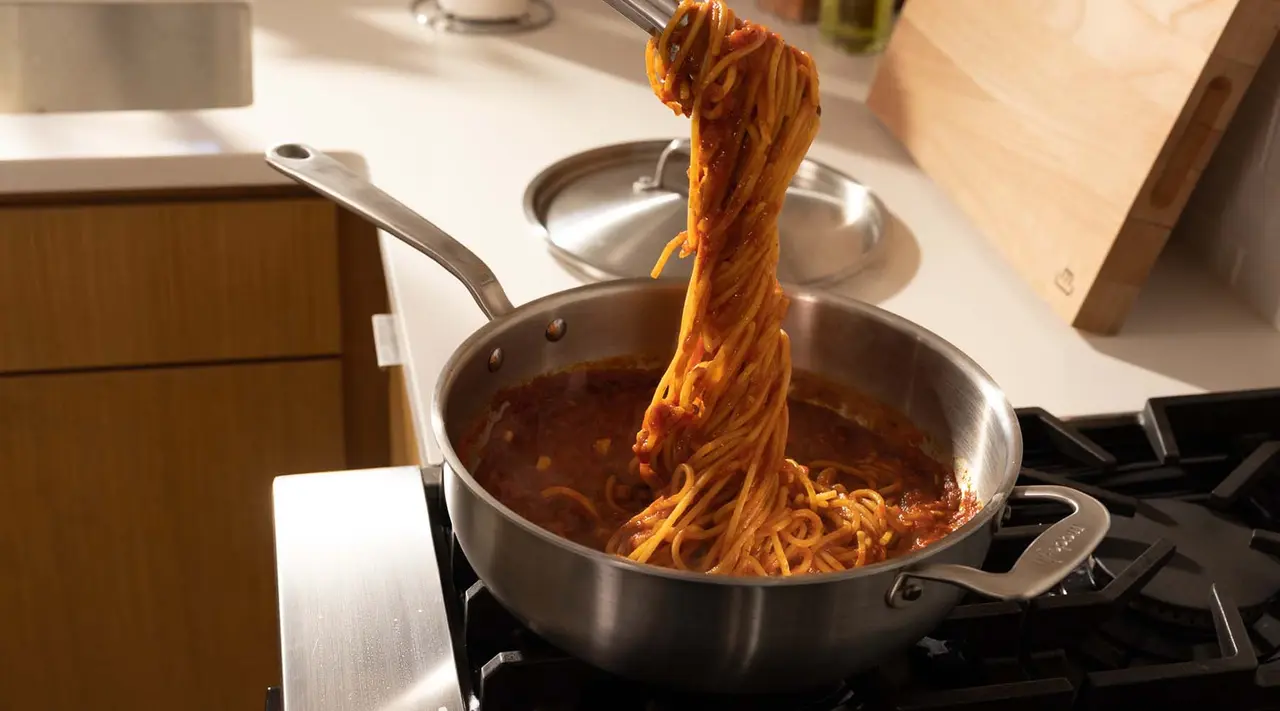It’s not just for waffles.

We’ve spoken at length about the time-saving, stress-reducing powers of meal prep. One area we haven’t touched on in as much detail is freezer meals—specifically, why your freezer is likely one of your most underutilized meal prep tools. One of the hands-down best ways to store your soups, chilis, casseroles, and any other batch-cooked meals is to pop them in the freezer, pulling them out the morning before you plan to eat them for a home-cooked—yet almost completely effortless—meal.
Along with making your life easier, freezing cuts down on waste as well. Where a stew or casserole might last a week tops in the refrigerator, freezing it right after cooking helps stretch it for months, and keeps you from having to throw away leftovers. And while you can’t freeze everything with good results (eggs and starches can be finicky, for example), a shocking number of foods freeze well, from whole casseroles to braised meat dishes. Here are some of the items we routinely freeze—along with how to store them properly.

One of the biggest pitfalls when it comes to freezing food is the risk that it’ll dry out once you reheat it. But you know what never has that issue? Soup. Pretty much any soup—brothy, chowder-y, or creamy—does well in the freezer. And because it’s so easy to portion out, you can easily defrost as much or as little as you like.
The freezer also comes in especially handy when making time-intensive soups, like homemade chicken stock, broth, or anything with dried beans or lentils. It’s also a way to extend the lifespan of seasonal produce, like in a soup using fresh pumpkin. Note that we don’t recommend freezing potato-based soups, as the starches turn gummy once defrosted.
Chili is basically just soup by another name, so you can bet it’s going to freeze just as well. Packed with protein and nutrients from meat, beans, and maybe even a few veggies, chili is a fantastic freezer-friendly meal option.
We especially love this Pork Chili Colorado, a Mexican dish named for its deep brick-red hue, which Chef Edgar Rico of Austin’s Nixta Taqueria makes with pureed whole chiles and browned pork shoulder. Serve it up with some fresh tortillas or a skillet of warm cornbread.
Dead simple to make and even easier to freeze, a good pasta sauce is one of the building blocks of our meal prep routine. And while it’s not a full meal on its own, tomato sauce is a great base ingredient for pizza, lasagna, or pasta dishes. We’ll also use it to poach a couple of eggs for a quick eggs in purgatory, or even as a base for a tomato and basil soup.
You don’t have to stick with a simple marinara sauce, however: One of our favorite life hacks is freezing a batch of meaty, slow-cooked bolognese to add to pasta or even risotto.
Love the idea of eating piping hot enchiladas, baked ziti, or lasagna on a weeknight? The freezer’s your answer. For pasta-based casserole dishes, however, we recommend freezing the uncooked dish, then defrosting and baking it when you’re ready to serve. This keeps the pasta layers from getting soggy and the dairy from separating.
We could eat toast for breakfast every single morning—especially if it’s sliced thick and spread with salted butter and jam. If you’re similarly afflicted, you know how important it is to have a steady supply of good bread on hand.
Apart from marrying a baker, the best way to do this is to freeze individual slices before storing them in an air-tight container or plastic bag. This way, you won’t have to defrost the entire loaf to make a single croque monsieur.

Before you pop an entire quart container of chili or bolognese in the freezer, think about how much of it you’ll actually use at one time. Since we don’t recommend refreezing previously defrosted food, portioning food into sealable containers or aptly-named freezer bags can help reduce waste as well as help food defrost more quickly. Generally, the less time it takes for food to freeze and defrost, the better it’ll taste once it’s reheated.
To store, make sure your container is closed tightly, removing as much of the air as possible to prevent freezer burn. Using an airtight container is a great way to do this, though you can also invest in a vacuum sealer if you do (or plan to do) a lot of freezing or preserving.

A freezer full of homemade soup, chili, or pasta sauce ready to be defrosted is a worthy alternative to a stack of store bought frozen meals (which, in a pinch, occasionally get the job done). Like our other meal-prep strategies, freezing portions of homemade food also helps save time and energy: With all the hard work out of the way, all you have to do is turn on the oven or microwave.
Along with making your life easier, freezing food is also an extremely effective way to preserve the flavor and nutrients of food. This is why frozen vegetables like peas are often recommended over the fresh versions, since they’re typically frozen soon after being picked.
Nothing makes us feel quite as prepared as pulling a whole tray of homemade lasagna out of the freezer, fully assembled and ready to pop in the oven. And while you don’t need a ton of specialized equipment for making freezer-friendly meals, the right meal prep tools—like our heavy gauge aluminum Sheet Pan or professional-quality Non Stick—can help prevent burnt or undercooked food, cut down on total cook time, and make for seamless freezer-to-oven transfer.
We use cookies to provide a better user experience. By using our site, you agree to our use of cookies. See our Privacy Policy to learn more.